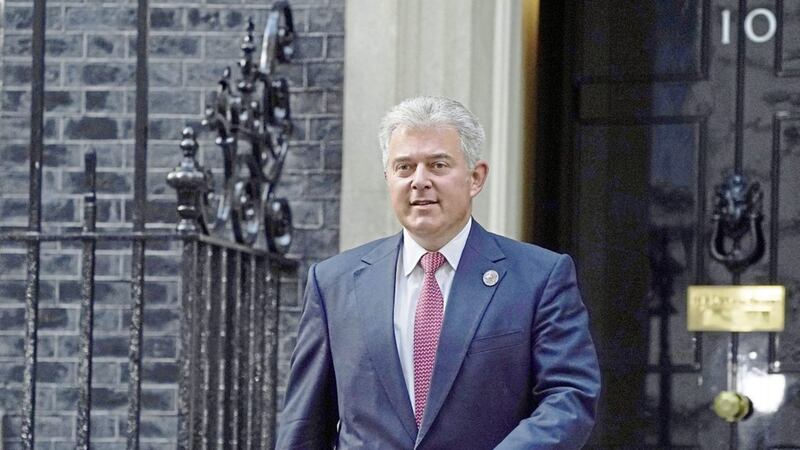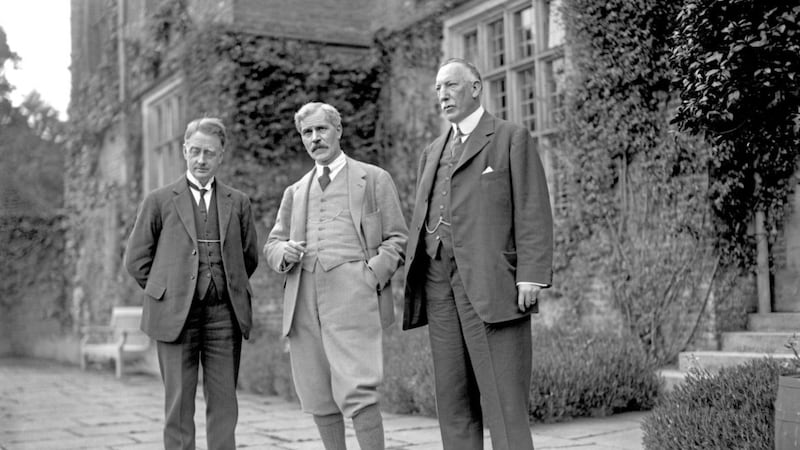On Tuesday afternoon, in the House of Commons, Secretary of State Brandon Lewis introduced the Northern Ireland Troubles (Legacy and Reconciliation) Bill.
The intention of the bill, so he says, is to ‘address the legacy of the NI Troubles and promote reconciliation by establishing an Independent Commission for Reconciliation…and providing for experiences to be recorded and preserved and for events to be studied and memorialised.’
In fairness to him, he has scored a bullseye with the reconciliation part of the bill. Just about everyone is reconciled to the fact that this latest attempt to address the legacy of the troubles (which the bill cites as having occurred between January 1, 1966 and April 10, 1998) is doomed to failure. It can’t even be likened to a curate’s egg, for it, at least, is good in parts.
Reconciliation, in the traditional sense that Lewis means, is only possible when you have reached the post-conflict resolution stage. Northern Ireland is nowhere close to that point. At best—and I’m being unusually optimistic in saying even this—we are at the conflict stalemate stage. The two main community/political/electoral blocs continue to promote their own separate and competing narratives of what happened between 1966 and 1998. Indeed, both blocs would source the roots and cause of that phase of the conflict to a much earlier point. So, let’s face it, if they can’t and don’t agree on a specific cause and starting point, then there’s no chance on any agreement whatsoever on what happened between 1966 and 1998.
Reconciliation is the consequence of mutual understanding and a collective willingness to do things differently. Its primary purpose is to promote a common vision for how people live together in an agreed space: and that usually requires agreement on the constitution and form of governance. Which means we’re really screwed in Northern Ireland. Around 40 per cent want to stay in the UK. Another 40 per cent or so would prefer some form of Irish unity. And the rest will finally make up their minds when they examine the competing cases in the event of a border poll (which I still think is likely much sooner than later).
Again, how do you bring the two big blocs together (and they still represent about 75 per cent of those who regularly vote) when they can’t agree on the most essential things of all—their identity and the state in which they want to live? Yes, arrangements can be reached—and have been reached—whereby we don’t have military and paramilitary boots on the ground: but those arrangements haven’t been accompanied by either consensual, successful, power-sharing government, or by much in the way of demonstrable evidence that we want to park the constitutional question and focus on what is maybe best understood as ‘everyday politics’.
Let’s go back to another aspect of Lewis’s bill, the Independent Commission for Reconciliation. For the life of me I have no idea how what it proposes to do (carrying out reviews of death during the troubles; carrying out reviews of other harmful conduct; determining whether to grant persons immunity from prosecution; producing the ‘historical record’ of deaths related to the troubles etc) would actually assist a process of reconciliation—even if reconciliation were possible. Obviously, Lewis thinks, or is letting on to think, that reconciliation is possible, so maybe he could explain how granting immunity against a background in which we only have conflict stalemate would, in fact, underpin a reconciliation process?
It is essential to link truth and reconciliation when moving on from conflict. But I don’t see anything in this latest attempt to address the ‘legacy problem’ which encourages truth, let alone insists on truth. Oral histories won’t necessarily give an overall truth anyway: not because those providing it will lie, but because they will come to it—which is perfectly understandable in the circumstances—with their own narrative cemented into place after decades.
Maybe a more important question to be addressed is this: is genuine reconciliation possible in Northern Ireland? Or, putting that a slightly different way, is it possible to have reconciliation here when one bloc refers to it as Northern Ireland, while the other calls it the north, or the six counties? Is reconciliation possible with the shadow of a border poll hovering over the GFA institutions? Is reconciliation possible when each executive in turn has been disrupted, stood down, or forced into crisis talks? Is reconciliation possible when a significant majority—according to opinion polls—has so little confidence in the executive making a difference for the better?
Huge amounts of time and money will be pumped into this latest venture. Throwing money at this sort of project is something we’re particularly good at. It fuels the pretence that we’re serious about the truth when, instead, we just want to convey the impression we’re serious.
One thing is certain: whatever actually emerges at the end of this process there’ll be nothing resembling consensus or an agreed truth.








